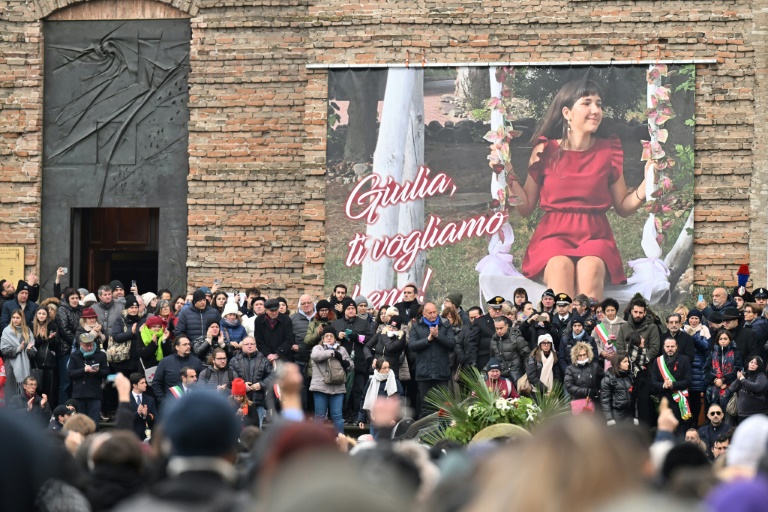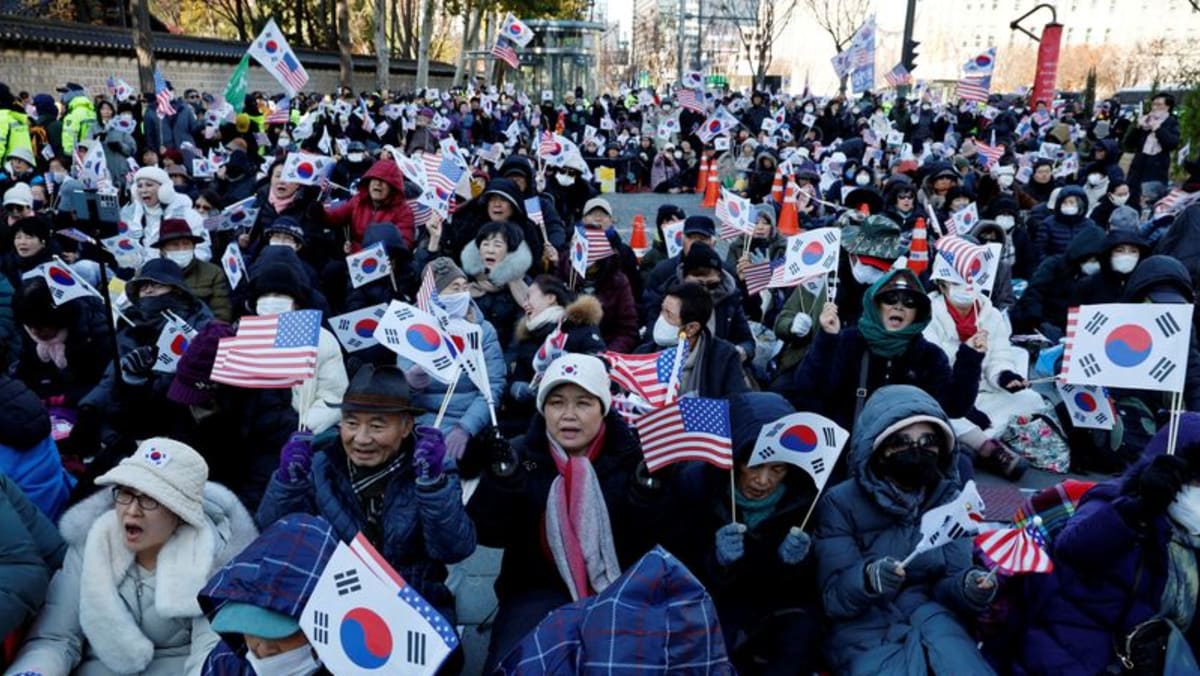A major femicide trial opened in Italy on Monday after the brutal murder of a university student by her ex-boyfriend that triggered outrage and national soul-searching over the roots of male violence against women.
The stabbing in November of Giulia Cecchettin, 22, a biomedical engineering student at the University of Padua, cast a grim spotlight on femicide in Italy, where the vast majority of victims are killed at the hands of their current or former partners.
The accused, Filippo Turetta, 22, did not appear in the Venice courtroom on Monday.
But Turetta, who risks life in prison, has previously confessed before a judge to the murder of Cecchettin.
With the prosecution and defence deciding not to call witnesses, the court decided that the verdict should be handed down on December 3.
According to his counsel, Turetta is expected to appear in October “to answer all the questions” asked of him.
Cecchettin’s family has filed a claim for damages of 1 million euros ($1.1 million).
According to official statistics, a woman is killed every three days in Italy, a majority-Catholic country where traditional gender roles still hold sway and where sexist behaviour by men is often downplayed.
Cecchettin, who was due to graduate just days after her death, was reported missing on November 11 after accompanying Turetta to a shopping centre and never returning home.
After video cameras near Cecchettin’s home revealed images of Turetta attacking her violently before fleeing with her in his car, police launched a week-long manhunt.
Her body was found on November 18 in a gully near Lake Barcis, about 120 kilometres (75 miles) north of Venice. Her head and neck were punctured with more than 70 stab wounds, according to media reports citing the autopsy.
Turetta was arrested a day later on the side of the road near Leipzig, Germany after his car ran out of petrol.
Marking what activists hoped would be a turning point, hundreds of thousands of demonstrators took to the streets across Italian cities on November 25, the International Day for the Elimination of Violence against Women, calling for cultural change.
Cecchettin’s sister, Elena, has denounced the “patriarchy” and “rape culture” that she says is prevalent in Italian society.
“Rape culture is what legitimises every behaviour that goes to harm the figure of the woman, starting with the things that sometimes are not even given importance such as control, possessiveness, catcalling,” Elena Cecchettin wrote in the Il Corriere della Sera daily after her sister’s death.
At Cecchettin’s funeral in Padua, her father Gino called for his daughter’s death to be a “turning point to end the terrible scourge of violence against women”, imploring men to “challenge the culture that tends to minimise violence by men who appear normal”.
But at the court, Turetta’s lawyer, Giovanni Caruso, said that the accused “deserves a sentence, not a trial by media”, adding that he “must not become the face of a cultural battle against gender violence”.
“It is not femicide that is on trial but Filippo Turetta,” Venice prosecutor Bruno Cherchi was quoted as saying in Italian media.
As Turetta waived his right to a preliminary hearing after his confession, the proceedings are expected to be relatively brief.
He faces charges including voluntary manslaughter aggravated by premeditation and kidnapping, and others related to stalking and hiding Cecchettin’s body.
Excerpts of Turetta’s questioning before a judge on December 1 were broadcast last week on the television programme “Quarto Grado” in which he is seen admitting: “I am responsible, I am guilty. I am responsible for these acts, yes.”
In a quiet voice, Turetta explains how Cecchettin told him she wanted to break off their relationship, prompting an argument in the car, before she fled.
Turetta describes how he grabbed a knife and stabbed her in the arm, before dragging her back in the car, from which she later escaped.
“I gave her, I don’t know, about 10, 12, 13, I don’t know, several blows with the knife,” Turetta says in the video.
According to the interior ministry, 120 women were murdered in Italy last year, of whom 97 were killed by family members or current or former partners.
Comparisons with other European countries are difficult due to inconsistent data, but the issue has recently also risen to prominence across the continent.
Following Cecchettin’s death, Italy’s parliament adopted a package of bills to strengthen existing laws to protect women, but activists say cultural change requires much more, starting with compulsory education on the topic in schools.
A July 2021 report from the government’s department of gender equality found that “in some regions of Italy up to 50 percent of men consider violence in relationships to be acceptable.”







